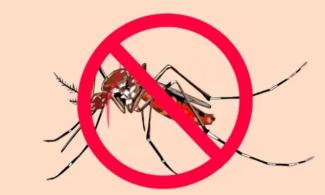
The group said Nigeria's environmental design remains a mosquito breeding site and access to free qualitative health care for Nigerians remains a mirage.
#EndMalariaInNigeria campaign has lamented that more families have been thrown into multidimensional poverty in Nigeria in the last one year, making it more difficult for them to feed well and access basic health care services.
The group said Nigeria's environmental design remains a mosquito breeding site and access to free qualitative health care for Nigerians remains a mirage.
It added that there should be a conscious effort towards the construction of modern drainages, dams and sewers for effective water and waste management to eliminate mosquito breeding spaces.
Francis Nwapa, Convener of #EndMalariaInNigeria who made this known on Thursday, called on the government to adopt preventive approaches in the fight against mosquitoes to eliminate malaria.
He said, "Today as Nigeria joins the rest of the world to mark World Malaria Day, a day set aside globally to remind people of the catastrophic effect of malaria on humans, we in #EndMalariaInNigeria say that this year's theme ‘Accelerating the fight against malaria for a more equitable world,’ is in contrast with what's obtainable in Nigeria as there are no intentional efforts to be accelerated by government or policymakers.
"The Nigerian ‘Environmental design’ remains a mosquito breeding site and access to free qualitative health care for Nigerians remains a mirage and there are no indices that reflect it will change any time soon.
"For example, the World Health Organization asserted these ‘inequities in access to education and financial resources further exacerbate risk: children under 5 years of age from the poorest households in sub-Saharan Africa are 5 times more likely to be infected with malaria than those from the wealthiest households.’
"In the last one year, more families have been thrown into multidimensional poverty in Nigeria making it more difficult for families to feed well and access basic health care services.
"In a malaria endemic country like Nigeria, there should be a conscious effort towards modern drainage, dam and sewer construction for effective water and waste management with the aim of eliminating mosquito breeding spaces.
"Again, a proper government housing scheme alongside a constant power supply will enhance the fight against mosquitoes.
"Expanding primary health care services to cater for growing community population and investing in research centres among other strategic actions can adequately help in prevention, detection and treatment of malaria cases."